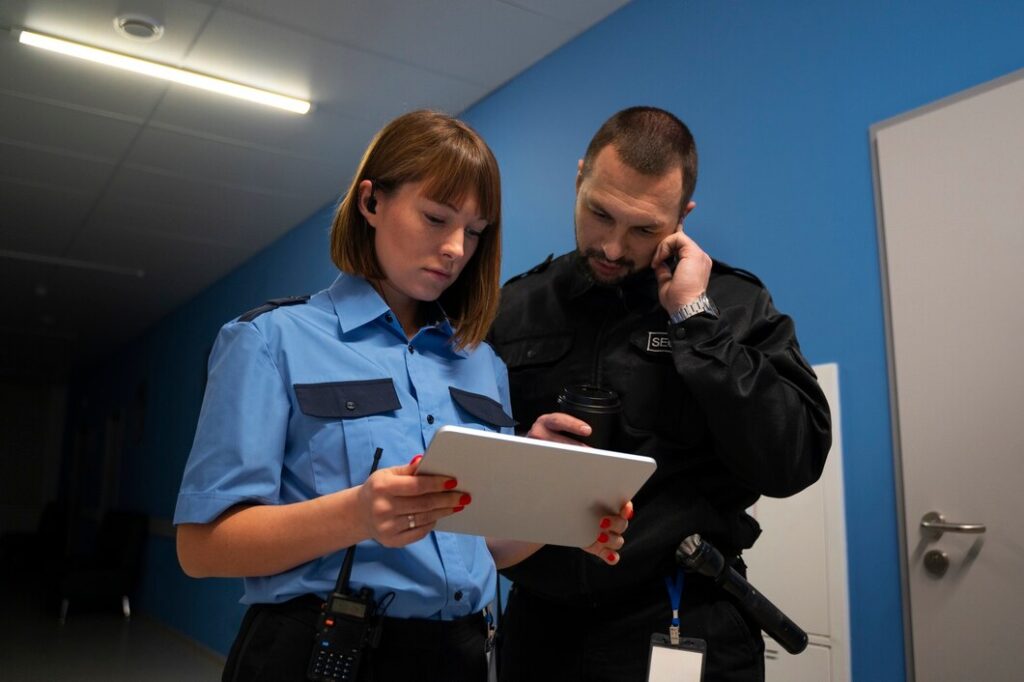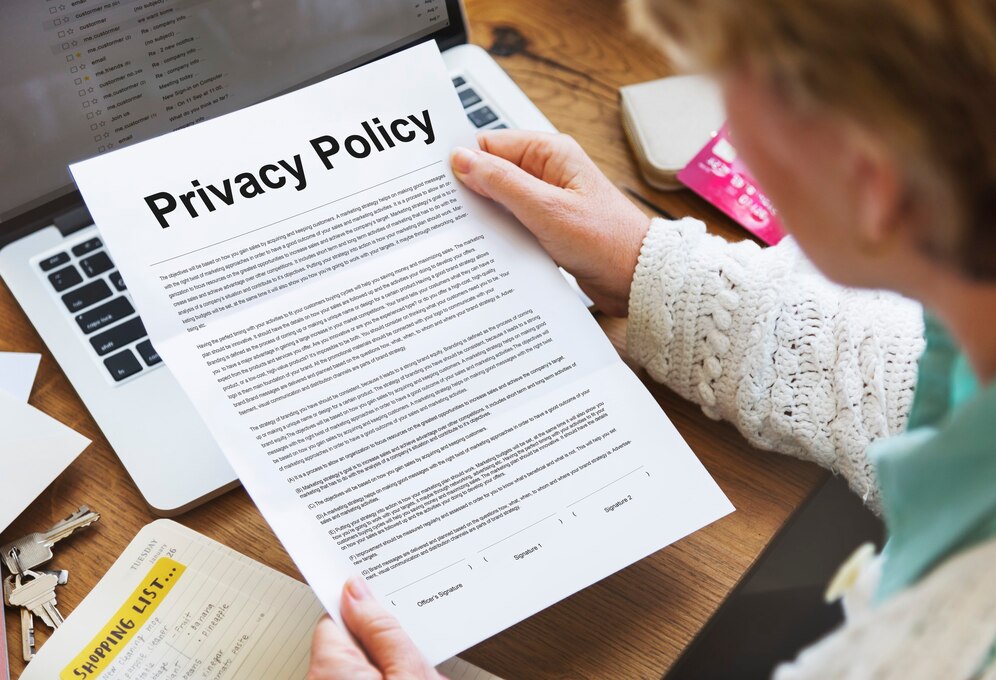Navigating the landscape of security services involves understanding various factors that contribute to the overall expenditure. The term Security Services Cost encompasses a multitude of considerations, from the intricacies of your property to the level of expertise required. As we delve into this realm, we’ll explore the nuances that shape pricing, including the scope of services, location dynamics, and the pivotal role of technology. Whether you’re safeguarding a residential haven or a bustling business hub, each element contributes to a tailored security solution. Join us on a journey to unravel the intricacies of security costs, empowering you to make informed decisions and secure peace of mind in an unpredictable world.
Table of contents
Factors Affecting Security Services Cost
Scope of Services:
The Security Services Cost hinges on the scope of services tailored to your unique security needs. A comprehensive security plan, encompassing surveillance, access control, and response protocols, may incur higher costs but provides thorough protection. On the flip side, if you opt for more basic services, the cost might be comparatively lower. The scope also extends to the types of threats addressed, be it physical breaches, cyber threats, or both. Understanding the depth of protection required is pivotal in determining the investment in security services, ensuring a balance between robust defense mechanisms and budget considerations.
Considering the evolving nature of threats, it’s essential to regularly assess and update your security measures. This proactive approach ensures that your security protocols remain effective against emerging risks and challenges. Additionally, investing in ongoing training for security personnel enhances their ability to detect and respond to potential threats swiftly and effectively. By staying proactive and continuously improving your security measures, you can better safeguard your assets, reputation, and peace of mind.
Location Matters:

When assessing the Security Services Cost, the geographical location emerges as a significant influencer. Urban areas, bustling with activity, often command higher costs due to elevated security demands and the intricate nature of safeguarding diverse environments. In contrast, suburban or rural settings may present different challenges, affecting the overall budget. Factors like crime rates, population density, and the prevalence of specific risks in a region contribute to the varying costs. Understanding how location matters in the context of security expenses allows for a nuanced approach in tailoring protective measures to the specific dynamics of a given area, ensuring an optimal balance between effective security and budget considerations.
Location plays a crucial role in determining security costs, with urban areas typically requiring higher budgets due to increased security demands. Factors such as crime rates and population density influence expenses. Understanding location dynamics helps in optimizing security solutions for budgetary constraints.
Size of the Property:
Delving into the realm of Security Services Cost, the size of your property stands out as a pivotal determinant. Larger properties naturally pose unique challenges, demanding a more extensive security infrastructure. The expansive grounds may require additional personnel, surveillance systems, and advanced technology for comprehensive coverage. Conversely, smaller properties might incur comparatively lower costs. The spatial considerations not only influence the number of security professionals needed but also impact the deployment of surveillance measures. Navigating the intricacies of property size allows for a tailored approach to security solutions, ensuring that the investment aligns seamlessly with the specific demands posed by the dimensions of your residential or commercial space.
Property size significantly impacts security expenses, with larger properties requiring more extensive infrastructure and personnel. Smaller properties generally incur lower costs. Tailoring security solutions to property dimensions ensures optimal investment alignment.
Level of Expertise:
The proficiency of security professionals significantly shapes the landscape of Security Services Cost. Opting for highly trained and skilled experts naturally commands a higher price, reflecting their expertise in safeguarding against potential threats. Experienced professionals bring a level of assurance and competence that contributes to the overall sense of security. On the flip side, choosing less experienced personnel may lower costs but could impact the efficacy of your security measures. Striking a balance between expertise and budget considerations is crucial when navigating the intricacies of security services. Understanding how the level of expertise influences costs ensures that your investment aligns seamlessly with the caliber of protection required for your specific residential or commercial needs.

Technology Integration:
In the intricate web of Security Services Cost, the integration of technology emerges as a transformative factor. Employing cutting-edge security systems and advanced technology can enhance overall protection but may contribute to an increased expenditure. From state-of-the-art surveillance cameras to biometric access controls, the adoption of these innovations reflects a commitment to robust security measures. While technological integration may elevate costs, it also brings efficiencies, real-time monitoring capabilities, and a proactive defense against evolving threats. Understanding the role of technology in the context of security expenses empowers individuals and businesses to make informed decisions, ensuring that the investment aligns seamlessly with the desired level of security and peace of mind.
24/7 Surveillance:

The constant watchful eye provided by 24/7 surveillance significantly impacts the landscape of Security Services Cost. This continuous monitoring, although crucial for heightened security, often contributes to an increased investment. The assurance of round-the-clock vigilance requires advanced technology, dedicated personnel, and intricate systems, all influencing the overall expenditure. Whether safeguarding residential spaces or bustling business premises, the commitment to constant surveillance ensures a proactive defense against potential threats. While the costs associated with 24/7 surveillance may be higher, the benefits of enhanced security, timely response, and peace of mind justify the investment for those prioritizing a comprehensive and unwavering protective shield. Understanding the implications of continuous surveillance allows for informed decisions aligning security measures with budget considerations.
Type of Security Personnel:
When assessing Security Services Cost, the type of security personnel chosen becomes a defining factor. Opting for armed guards typically incurs higher fees due to the specialized training and heightened security provided. On the other hand, choosing unarmed guards may offer cost savings while still providing a visible security presence. The decision hinges on the specific security needs of your property or business. Armed guards bring an added layer of deterrence and response capability, reflecting in the overall expense. Striking a balance between the level of security required and budget considerations ensures a tailored approach, aligning your investment with the caliber of protection necessary for your residential or commercial space.
Emergency Response:
The inclusion of an efficient emergency response system significantly influences the dynamics of Security Services Cost. Services offering rapid emergency response often come with higher fees, reflecting the immediacy and effectiveness of their actions. The deployment of well-trained personnel, coupled with streamlined communication channels and quick response protocols, contributes to the overall investment. While emergency response capabilities may contribute to elevated costs, they play a crucial role in mitigating potential risks and ensuring a swift reaction to unforeseen incidents. Understanding the impact of emergency response on security expenses allows individuals and businesses to make informed decisions, aligning their investment with the level of urgency and proactive defense required for their specific needs.

Industry-Specific Needs:
Navigating the realm of Security Services Cost becomes more nuanced when considering industry-specific needs. Different sectors, such as finance, healthcare, or retail, may present unique security challenges, impacting overall expenditure. The intricacies of safeguarding sensitive financial data or ensuring patient confidentiality may require specialized security measures, potentially elevating costs. Understanding the specific security demands inherent in each industry allows for a tailored approach, aligning the investment with the sector’s nuances. While industries with distinct security needs may incur additional expenses, the peace of mind and targeted protection provided often justifies the tailored investment, ensuring that security measures are finely tuned to the specific requirements of the chosen sector.
Customized Solutions:
Tailoring security measures to your specific needs is a key determinant in the landscape of Security Services Cost. Opting for customized solutions ensures that protective measures align precisely with the unique challenges posed by your residential or commercial space. This tailored approach may include a combination of surveillance systems, access controls, and response protocols crafted to suit your individual requirements. While customized solutions may involve additional costs, they provide a strategic and effective defense against potential threats. Understanding the value of personalized security allows for informed decision-making, ensuring that the investment mirrors the exact level of protection needed for your property, ultimately delivering comprehensive and targeted security solutions.
Contract Terms:
The terms of your security services contract wield a significant impact on the overarching Security Services Cost. Opting for longer-term contracts or exclusive arrangements may offer cost savings compared to short-term agreements. Establishing a sustained partnership with a security provider allows for consistency in protective measures, potentially resulting in discounted rates. Conversely, shorter contracts may provide flexibility but could incur higher costs in the long run. Balancing the duration of the contract with your specific security needs and budget considerations is essential. Understanding how contract terms influence costs empowers individuals and businesses to make strategic decisions that align seamlessly with their desired level of security and financial parameters.

Regulatory Compliance:
Navigating the landscape of Security Services Cost involves considerations for regulatory compliance. Ensuring that security services align with industry standards and legal requirements may contribute to additional expenses. Security providers investing in compliance measures, such as training and adherence to specific regulations, may reflect these efforts in their pricing. However, the peace of mind gained from knowing that your security measures meet or exceed regulatory expectations is invaluable. Striking a balance between compliance and budget considerations is crucial. Understanding the impact of regulatory adherence on costs empowers individuals and businesses to make informed decisions, ensuring that their investment in security services not only safeguards their assets but also aligns seamlessly with legal and industry standards.
Conclusion:
Choosing security services involves considering various factors that affect the cost. Factors like the size of your property, the expertise of security personnel, and the use of technology can impact expenses. Where you’re located and the kind of emergency response you need also play a role. Different industries may have specific security needs, affecting costs. Customized solutions tailored to your requirements may cost more but provide targeted protection. The length of your contract and compliance with regulations can also influence expenses. Striking a balance between your budget and the level of security you need is essential for making the right decision.
FAQ’S
Various factors influence costs, including property size, expertise of personnel, technology use, location, emergency response, industry needs, and compliance requirements.
Urban areas often have higher costs due to increased security demands, while suburban or rural settings may present different challenges and costs.
Tailored solutions may cost more but provide targeted protection by aligning precisely with unique challenges, ensuring efficient and effective security measures.

